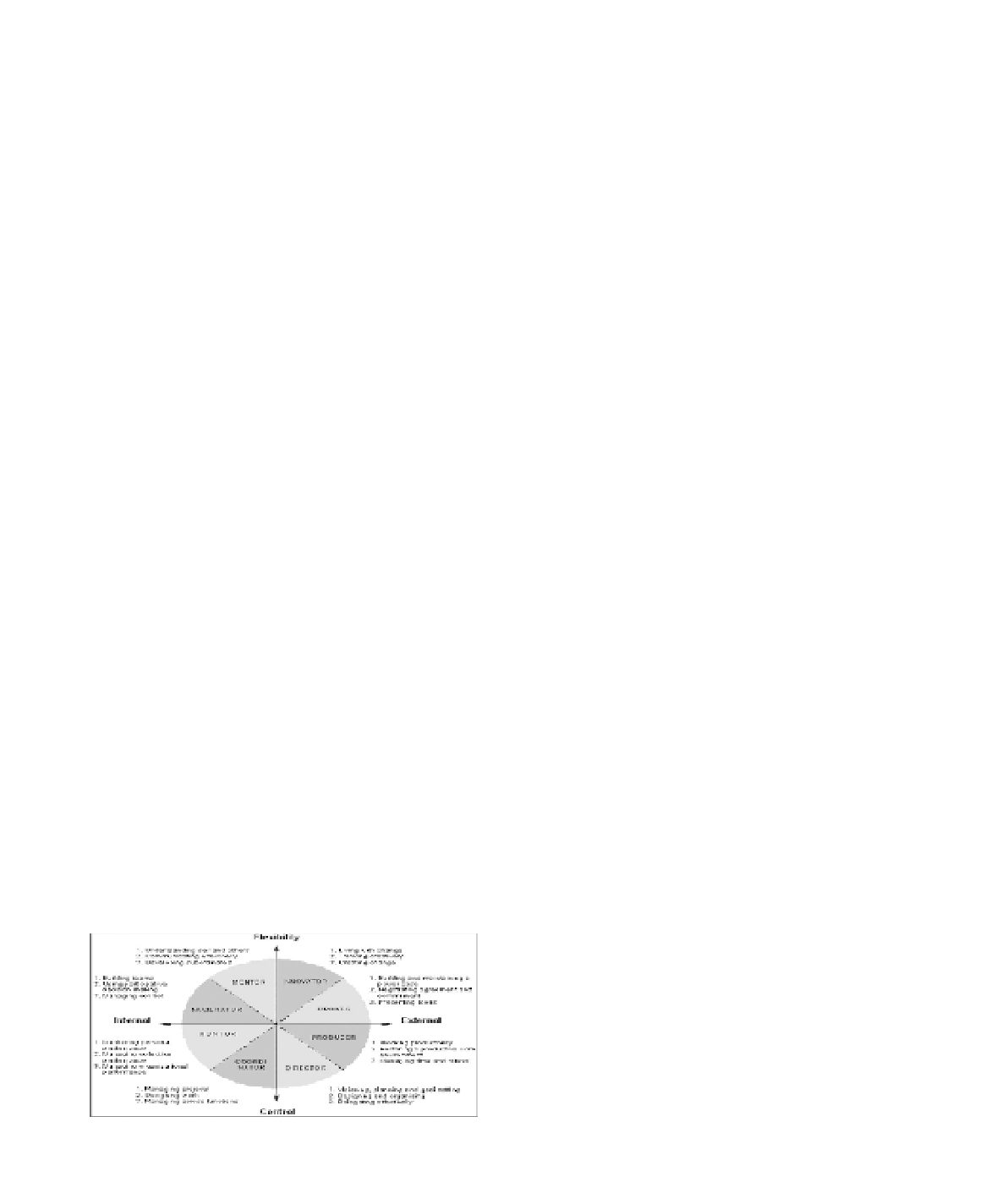Travel Reference
In-Depth Information
both the possession of knowledge and the behav-
ioural capacity to act appropriately and to develop
competencies, one person must both be introduced
to knowledge and have the opportunity to practice
their skills.
Be that as it may, the main objective of manage-
ment education is to provide the industry with high
calibre graduates equipped with the most relevant
management competencies (Christou, 2002; Hans-
son, 2001). With that, it is important for hotel and
tourism educators to incorporate a wide range of
learning experiences that can contribute to the devel-
opment of essential competencies (Breen, Walo, &
Dimmock, 2004). Concurrently, recent years has
witnessed a significant emphasis being placed in
understanding the most critical management compe-
tencies for those who working in the hospitality and
tourism industry, with particular attention devoted
to examining the skills base of graduate hotel man-
agers (Raybould & Wilkins, 2005). This further sup-
ported by Jauhari (2006) who commented on the
need for curricula to have a heavy focus on leader-
ship and competency development in order to meet
the industry expectations and needs.
The model has a sound theoretical and research
base and offers an opportunity to examine key
managerial competencies based on organiza-
tional outcomes such as maximization of output,
adaptation and change, human relations and con-
solidation and continuity. Quinn et al. (1990) scru-
tinizing 8 managerial roles and 24 management
competencies linked to each role by using CVF.
The CVF conceptualizes that each of the organi-
zational outcomes are crucial parts that make up
the larger construct, namely organizational and
managerial competencies (Quinn, et al., 1990). The
CVF provides managers with the opportunity to
increase effectiveness by developing and utilizing
a range of often competing competencies, depend-
ing on the situation. It is worth mentioned that the
CVF framework was popularly adopted by previ-
ous scholars in the hospitality researches (Breen,
et al., 2004; Walo, 2001).
2.3
Competencies required by hospitality and
tourism graduates
Velo and Mittaz (2006) discovered the competen-
cies needed by hospitality management graduates
to cope with challenges and the skills found to be
the utmost critical to break into emerging interna-
tional markets are flexibility, openness, and cultural
awareness. Earlier study by Raybould and Wilkins
(2005) pointed out managers rated skills associated
with interpersonal, problem solving, and self-man-
agement skill domain as the most important. In
the same tone, few scholars noted that competen-
cies required by the hospitality and tourism gradu-
ates are more on transferrable generic skills such as
leadership, communication, and human resource
management (Kay & Russette, 2000; Walo, 2001)
and those skills are essential to ensure their success
across departments, organizations, and industry.
2.2
Competing Values Framework (CVF)
Originally developed by Quinn and Rohrbaugh
(1983), the first value dimension related to organi-
zational focus from internal (micro) to external
(macro), while the second value dimension related
with organizational structure for an emphasis on sta-
bility to an emphasis on flexibility. Both dimension
of CVF classified four models and each one contains
a different set of effectiveness criteria. The four mod-
els are Human Relation model, Open System model,
Rational Goal model, and Internal Process model.
Since hospitality managers need transferable
generic competencies, a framework by Quinn,
Faerman, Thompson, and McGrath (1990) enti-
tled “Competing Values Framework” (CVF) in
Figure 1 was deemed suitable to be discussed in
this paper to identify and explain significant man-
agement competencies.
2.4
Developing competencies through internship
Beggs, Ross, and Goodwin (2008) elaborated that
internship courses provide learning opportuni-
ties for undergraduates to experience professional
practice and activities associated with knowledge
application thus give opportunity to close the
gap between learned theory and practical reality.
The internship is an integral part of a student's
career development and may have numerous posi-
tive impacts on students (Lam & Ching, 2007). It
helps the students to develop the critical core skills
demanded by global markets including communi-
cation, time management, self-confidence, and self-
motivation which further supported Walo (2001)
who positively affirmed that students have gained
managerial competencies after the internship pro-
gramme. She claimed that for pre-internship, skills
Figure 1. Competing Values Framework. Source:
Quinn et al. (1990).




Search WWH ::

Custom Search